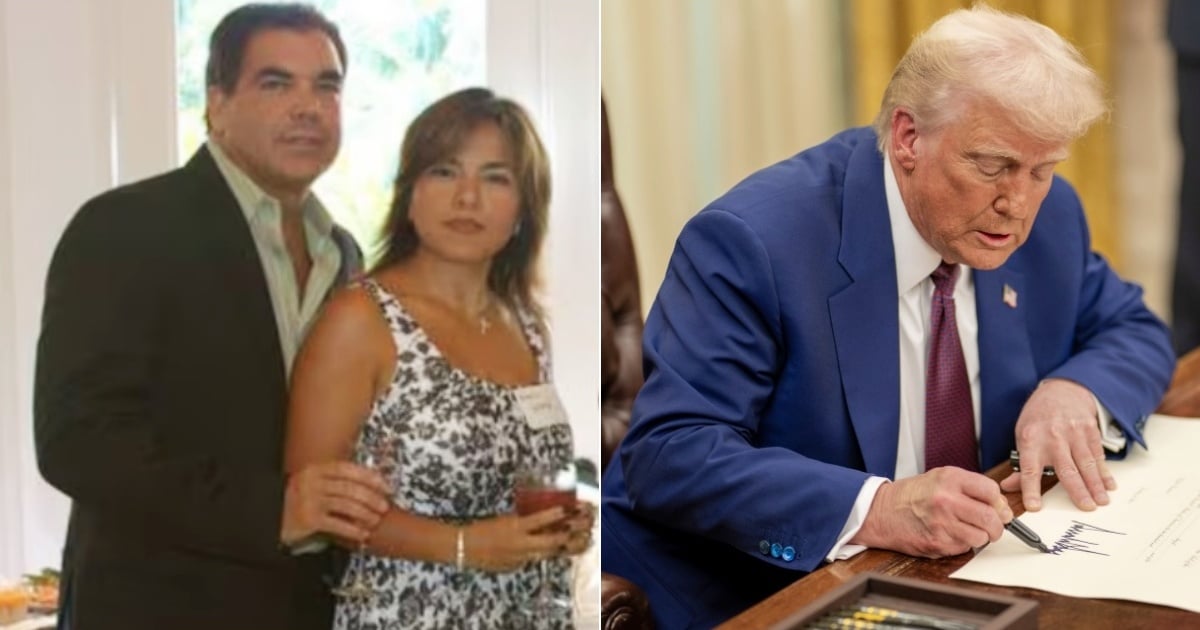President Donald Trump has granted clemency to Lawrence Duran, a Miami businessman who was serving a 50-year sentence for orchestrating the largest Medicare fraud scheme in U.S. history. Duran's sentence was commuted on May 28 as part of a wave of over two dozen clemencies issued by the president that day. The magnitude and impact of Duran's case, along with the severity of his original punishment, make this decision particularly noteworthy. Until his release, Duran was serving the longest sentence ever handed down for Medicare fraud—half a century behind bars.
An Unprecedented Medicare Fraud Scheme
Duran co-owned American Therapeutic Corporation (ATC), a chain of mental health clinics operating in Miami, Orlando, and across southern Florida. Between 2002 and 2010, he and his partner, Marianella Valera, masterminded a plan to defraud the federal Medicare system out of over $205 million, successfully pocketing approximately $87 million. The company submitted fraudulent claims for mental health treatments that were never provided or were given to patients who were not eligible for them. Victims included elderly individuals suffering from Alzheimer’s, dementia, and other severe conditions, who were incapable of participating in group therapy sessions billed to the government.
Federal prosecutors revealed that the accused filed more than 866,000 fraudulent claims and even held "medical record parties" to forge clinical documents for fake therapies. The illicit proceeds were laundered through shell companies like MedLink Professional Management Group and American Sleep Institute to obscure their illegal origins.
A Complex Web of Corruption
The fraud was not executed single-handedly. Duran and Valera were supported by a network of over 30 individuals, including doctors, psychiatrists, counselors, patient recruiters, and administrative staff. They paid bribes to assisted living facilities and nursing homes to send patients their way, with some patients even receiving a share of the kickbacks. "In some cases, patients received a portion of these bribes," the Department of Justice stated. The scheme involved inflating patient lists with vulnerable individuals, justifying unnecessary treatments, and billing Medicare for substantial sums.
A key figure in the operation was Judith Negrón, vice president of MedLink, who was found guilty on 24 counts of fraud, conspiracy, money laundering, and bribery. She was sentenced to 35 years in prison in 2011, and Trump also commuted her sentence, but during his first term in 2020.
Lavish Lifestyles and Political Maneuvering
Duran and Valera enjoyed a luxurious lifestyle from their fraudulent gains, living in a bayfront Miami condo and driving a Maserati. However, their ambitions extended beyond wealth. In 2006, Duran founded the National Association of Behavioral Health (NABH), a front organization used to lobby Congress for increased funding for partial hospitalization programs—the very programs his company exploited fraudulently. "In reality, NABH was a shell that provided Duran a legitimate-looking vehicle to lobby Congress for more Medicare funds for Duran and his co-conspirators’ fraudulent claims," Department of Justice attorney Jennifer Saulino wrote in a court filing.
Moreover, Duran instructed NABH staff on "how to win Medicare claim denials based on ATC's experience," allowing him to export his methods to other centers.
A Landmark Sentence and a Controversial Pardon
In May 2011, Duran and Valera pleaded guilty. By September, Duran was sentenced to 50 years in prison and ordered to pay over $87 million in restitution. This was the harshest penalty ever issued for Medicare fraud, significantly exceeding the previous record of 30 years. Valera, on the other hand, received a 35-year sentence, later reduced to 15 years, and was released in 2020. Margarita Acevedo, ATC’s marketing director, was sentenced to 91 months, and several other employees and accomplices were also convicted.
Federal authorities welcomed the sentences. "I hope this sends a message to those looking to defraud the government... you will spend a long time in jail if caught," Saulino declared. For a decade, this was the prevailing sentiment—until now.
A Clemency That Reopens Wounds
President Trump's decision to commute Lawrence Duran's sentence has been met with shock and concern. The scale of the fraud, the exploitation of vulnerable patients, and the professional nature of the criminal enterprise made it a landmark case. Releasing its mastermind raises serious questions about the criteria for granting clemency. For many, Duran's release not only nullifies an exemplary sentence but also sends a troubling message: even the most serious crimes can be pardoned with sufficient political favor.
Implications of Trump's Pardon for Medicare Fraud
What was the magnitude of Lawrence Duran's Medicare fraud?
Lawrence Duran orchestrated a Medicare fraud scheme involving over $205 million, with his company successfully claiming about $87 million through fraudulent means.
Who were the victims of the Medicare fraud scheme?
The victims included vulnerable elderly patients suffering from conditions such as Alzheimer's and dementia, who were unable to participate in the treatments billed to Medicare.
Why is Trump's commutation of Duran's sentence controversial?
The commutation is controversial due to the large scale and impact of the fraud, the exploitation of vulnerable individuals, and the concern that it undermines the severity of Duran's original sentence.
